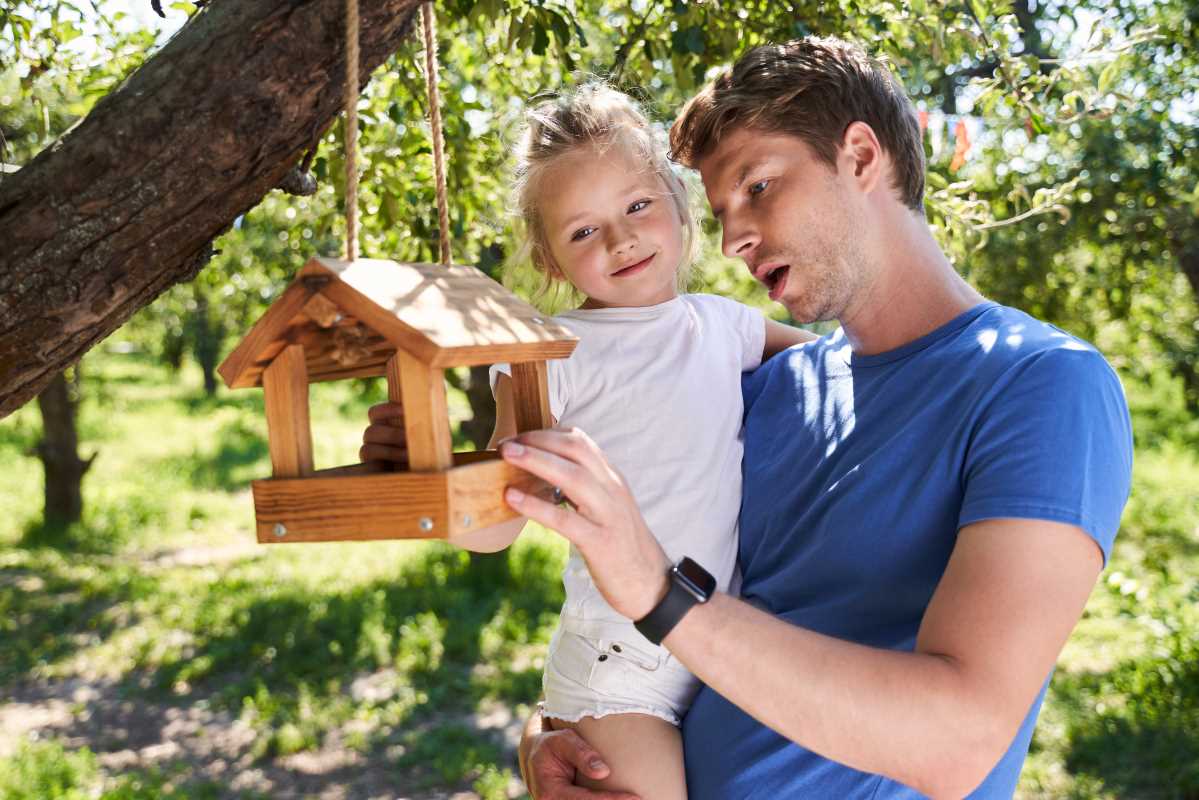Starting a new relationship is exciting, invigorating, and sometimes a little nerve-wracking. When children are involved, however, it adds a whole layer of complexity. Pacing becomes especially important since kids often need more time to adjust to changes, process emotions, and feel secure as family dynamics evolve. By being mindful of how you introduce a new partner and how fast things progress, you can create a smoother transition for everyone involved.
This guide focuses on pacing strategies to help families balance new relationships and parenting responsibilities, emphasizing the importance of sensitivity, openness, and patience.
Understanding the Importance of Pacing
For children, stability is everything. They thrive when they know what to expect, and any major changes to their lives can feel overwhelming. Whether you’re dating after divorce, separation, or loss, it’s vital to remember that introducing a partner too quickly may cause confusion, stress, or even resistance.
Children often process emotions differently than adults do. While you might feel ready to jump into a new relationship, your child might still be navigating feelings of insecurity, grief, or loyalty to a former parent figure. By approaching the situation with care and pacing things thoughtfully, you help preserve their sense of stability while cultivating an environment where trust can grow.
For example, imagine a 10-year-old who has just adapted to the idea of living between two households. Suddenly meeting a parent’s new partner in a highly personal setting, like at home, might feel disorienting or intrusive. Instead, gradual introductions in neutral settings give a child time to become comfortable without pressure.
Pacing isn’t just about sparing children from stress; it’s also about giving relationships the space to grow authentically. Done right, it can foster genuine connections that stand the test of time.
Tips for Healthy Pacing in New Relationships
Reflect on Readiness
Before you progress too far in a relationship, take time to ask yourself some important questions. Are you emotionally ready to welcome someone new into your life? How might this relationship fit into your long-term goals? Reflecting on your intentions ensures that you’re pursuing something meaningful, which becomes even more crucial when you’re also responsible for your child’s well-being.
Being honest with yourself helps you avoid impulsive decisions. For example, if you’re still healing from a breakup, jumping into a new romance may satisfy short-term loneliness but create long-term complications for both you and your child. This pause for self-reflection isn’t about delaying your happiness; it’s about building something sustainable.
Consider your child’s readiness too. Have they had enough time to adjust to recent changes, like a divorce or relocation? For younger kids, big transitions can feel destabilizing, and introducing another variable too soon may increase their stress. Look at their emotional state through their behavior and interactions. If they seem particularly clingy, withdrawn, or reactive to small disruptions, this might be a sign that they still need extra time before new dynamics are introduced.
Prioritize Open and Honest Communication
Kids pick up on far more than we often realize. Trying to keep your dating life “under wraps” may actually lead to confusion or mistrust over time. It’s pivotal to practice open and honest communication, tailored to your child’s age and emotional maturity.
For instance, with younger children, you could frame things simply by saying you’re spending time with friends and meeting new people. With older or pre-teen kids, you might clarify that you’re dating, emphasizing that it’s perfectly normal and doesn’t affect your love or commitment to them.
At no point should these conversations feel like oversharing. Details about your dating life should remain age-appropriate. What matters most is reassuring your kids that they are still your top priority. Statements like, “You are the most important person in my life, and I will always be here for you,” can work wonders in solidifying their sense of safety and importance.
Encourage them to voice their feelings. If they’re nervous, unsure, or even upset, listen actively. Avoid dismissing their concerns. Instead, thank them for sharing their emotions with you. Connection deepens when children feel their input is valued.
Introduce New Partners Gradually
The pacing of introductions is one of the trickiest parts of dating as a parent. Bringing a new partner into the fold too soon can feel invasive for your child, so take it slow. For instance, rather than introducing them as your significant other right away, you might start by mentioning your new friend in casual conversations.
When it’s time for your partner and child to meet, choose a neutral and relaxed setting, like a park, a pizza restaurant, or an afternoon outing with others. This reduces pressure on everyone while allowing for an organic, low-stakes interaction to occur. Activities where your child is naturally engaged, such as playing games or visiting an aquarium, can also help to break the ice.
Another helpful tip is to keep early meetings brief. Instead of a long dinner at home, you might plan a quick coffee stop where your child can say hello and move on. Giving everyone small, enjoyable experiences to build upon makes the process feel less overwhelming.
It’s also important to manage expectations. Don’t expect instant bonds or perfect harmony. Relationships take time to grow, and patience is key in laying a strong foundation.
Maintain Routines and Boundaries
One of the biggest gifts you can give your children during this time of change is consistency. Sticking to established routines helps create a reassuring sense of normalcy. Whether it’s bedtime rituals, weekend plans, or family meals, keeping these constants in place reinforces stability, no matter what else is going on.
Boundary-setting is equally crucial. Early on, make it clear to your partner that they’re not expected to step into a parenting role. Avoid asking them to discipline your child or take on responsibilities like school pick-ups until your relationship is well-established and everyone feels comfortable.
For example, you could tell your partner, “I love how supportive you are, but I need to handle the parenting for now.” This protects your child from feelings of confusion or resentment and allows trust between them and your partner to develop naturally.
Significant milestones, like sleepovers or cohabitation, are best delayed until the relationship has matured and everyone feels secure about the direction things are heading.
Monitor and Tune Into Your Child’s Reactions
Children may not always verbalize how they're feeling, but they often express emotions through behavior. Pay close attention to any changes in their routines, moods, or levels of engagement. Have they developed unusual fears or anxieties? Are they suddenly acting out at school or having trouble sleeping? These could be signs that they’re struggling with the changes in your personal life.
Even if everything seems fine, make it a habit to check in regularly. Create opportunities for open-ended conversations, such as, “I noticed you seemed quiet after meeting [name]. How are you feeling about everything?” This lets your child know their emotions are valid and important.
One-on-one time is also critical. By setting aside moments to connect with your child, you reinforce their place in your life while giving them uninterrupted space to express themselves. Activities like baking cookies, reading together, or going for a walk remind them of the unique bond you share.
Move Forward When Everyone Feels Comfortable
The pace at which you merge your new and existing family dynamics varies from household to household. What’s important is building consensus and ensuring everyone involved feels both heard and respected. Resist external pressures to move faster than what feels right for your family.
For example, your partner may want to spend more time together, or friends might encourage big steps like cohabitation. While opinions are everywhere, your child’s well-being should remain the ultimate compass. Don’t shy away from conversations with your partner about the importance of patience and why moving slowly strengthens the relationship you’re building.
If your child voices discomfort at any stage, revisit what adjustments can be made to accommodate their needs. Reassure them that their comfort takes priority.
Balancing New Love and Parenting
Creating new romantic connections is a beautiful experience, but it’s always crucial to balance your role as a parent with your role as a partner. The two don’t have to compete; rather, they can complement each other when approached with care and thoughtfulness.
By leading with love, empathy, and patience, you set the stage for stronger relationships both with your child and your partner. Make time for both meaningful parenting moments and opportunities to nurture your new romance.
Key Reminders as You Navigate the Process
- Each family dynamic is unique, so adapt these guidelines to suit your individual situation.
- Prioritize trust-building both within your family unit and with your new partner.
- Stay open to seeking external support, whether through parenting groups, therapy, or close friends.
- Trust the process—even if the pace feels slow, remember that thoughtful pacing lays the foundation for long-term happiness and harmony.
By moving forward mindfully and honoring the needs of everyone involved, you create an environment where love can flourish without compromising stability or security. Trust that with time, care, and effort, your family’s story will continue to grow and thrive in beautiful ways.







